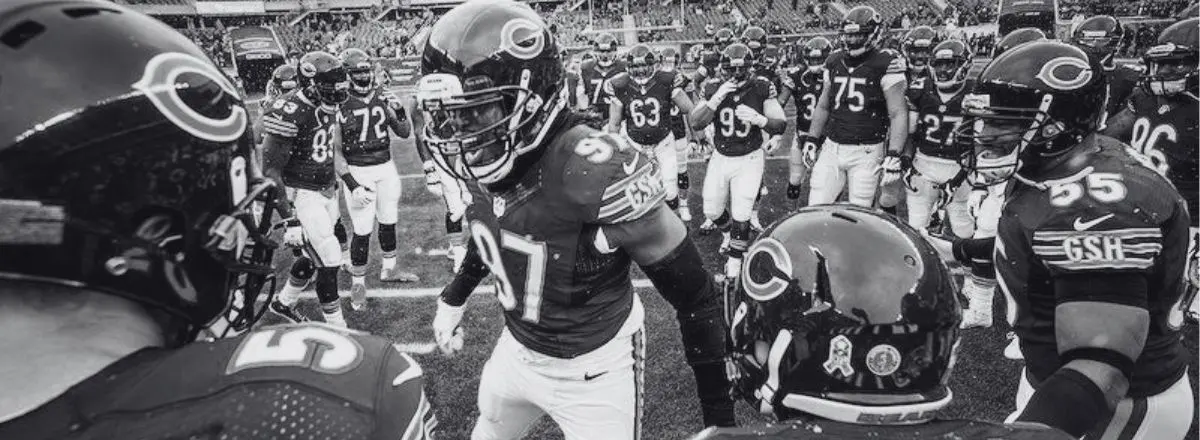The cost of participating in Illinois sports betting is about to potentially increase. Again.
More specifically, the cost of sports betting in Illinois could be spiking inside Chicago. Officials are apparently weighing whether to add a $0.50 cent charge to each individual wager in The Windy City to raise what they believe could be an additional tens of millions of dollars.
“What we looked at is what if the city extends a similar 50-cent per wager for all the [online] wagers placed in Chicago,” explained Chicago’s Deputy CFO Noor Shaikh at a recent sub committee meeting (h/t Legal Sports Report). “And we are estimating that this could raise anywhere from $40 million to $41 million over the next three years.”
This type of infusion of course jumps off the page. But the idea comes on the heels of Illinois sports betting taxes increases to a bracketed structure and following operators’ decision to pass on some of those added costs to consumers.
All of which raises the question: Is this really the right time to be considering yet another tweak to the sports model?
This Illinois Sports Betting Tax for Chicago Operations isn’t Technically on the Table…Yet
Sportsbook operators in Illinois can rest somewhat easy knowing this Chicago sports betting tax isn’t an official proposal at the moment. As Matthew Waters of Legal Sports Report writes;
“The idea of a 50-cent per bet tax for online bets coming from Chicago was not formally suggested. The tax was mentioned toward the end of the meeting when ideas received by members of the city council were presented. Shaikh explained that Chicago does get tax dollars from sports betting, but only 2 percent from retail bets placed [at] Wrigley Field. That amounted to $20,500 in revenue for 2024. This additional fee would bring Chicago an estimated $40 million in taxes in 2026, $40.6 million in 2027 and $41.2 million in 2028. That is a small drop in the bucket for Chicago, which had a spending plan of $17.1 billion for 2025, though various taxes and fees were added to close a $982.4 million gap.”
The catalyst behind this unofficial semi-proposal appears to be sports betting volume in Chicago. Sure, The Windy City’s budget may not desperately need an extra $40 million relative to its spending capacity. But this feels like an instance of the city wanting more out of the business it drives Illinois online sportsbooks.
“There were 366.1 million online sports bets placed in Illinois during 2024, which is nearly 99 percent of all bets placed in the state,” Waters continued. “The city’s estimate suggests that 80 million bets will be placed within Chicago city limits during 2026, which would have accounted for 21.8 percent of all bets in 2024.”
If these figures are accurate, Chicago is in fact receiving a pittance of Illinois sports betting profits. This additional tax could be a way to capitalize on the volume it guarantees operators.
Expect Sportsbook to Push Back Against Any Chicago Sports Betting Tax
Any companies who offer online sports betting in the United States will of course push back against this idea. (Assuming it becomes official, obviously.) This would be the case no matter what. Sportsbooks have accepted operating-cost increases in the past, but they seldom do so without some level of resistance.
In this case, the city of Chicago should brace for a ton. Some Illinois sports betting operators have already fired back at the state’s new tax plan. Most notably, FanDuel and DraftKings have added a $0.50 percent charge to all bets that they process. BetMGM and Hard Rock, meanwhile, are implementing harsher per-bet minimums.
This all comes in response to Illinois sports betting regulators more than doubling taxes for operators. For some, their expenses could quadruple. Here is a breakdown of the bracketing system The Prairie State now uses:
- 20 percent tax rate on gross revenue up to $30 million
- 25 percent tax rate on gross revenue between $30 to $50 million
- 30 percent tax rate on gross revenue between $50 to $100 million
- 35 percent tax rate on gross revenue between $100 to $200 million
- 40 percent tax rate on gross revenue over $200 million
Not surprisingly, FanDuel and DraftKings are the Illinois online sportsbooks who will be impacted the most. They estimate that their operating costs will rise by $50 million this year alone. That may not be an exaggeration, either.
Remember, the previous Illinois sports betting tax checked in at a flat 15 percent. So if a sportsbook generates $200 million in gross gaming revenue, prior laws required them to pay $30 million in taxes. With the current rule in place, this number on the same amount of revenue would rise to $80 million—a difference of $50 million.
Sports Bettors in Chicago will Inevitably Feel the Squeeze of a New Tax
While this new Chicago sports betting tax would technically be applied to operators, the costs will invariably be passed onto the consumers. Just look at how the most recent tax hike is playing out. All of the major sportsbooks are finding ways to offset some of their increased expenses.
Facing steeper taxes in Chicago will trigger the same reactions. Another $40 million per year may not be a lot relative to the city’s spending, but it will mean a great deal to sportsbooks’ bottom line.
This is not to say you should shed a tear for these mega corporations. They will still be able to turn lucrative profits off their Illinois sports betting services. However, as we know all too well, they aren’t in the business of just absorbing the full extent of extra costs. If this Chicago sports betting tax goes into effect, they will find ways to cover all or most of the added fees by increasing their own.
Take a look at this list of the top online sportsbooks so you can find one that works for all of your sports betting needs:
-
 100% up to $400 + 50 Free SpinsPlay Now
100% up to $400 + 50 Free SpinsPlay NowT&C apply, 18+, Play responsibly
-
 50% bonus up to $250Play Now
50% bonus up to $250Play NowT&C apply, 18+, Play responsibly
-
 50% up to $500Play Now
50% up to $500Play NowT&C apply, 18+, Play responsibly
-
EXCLUSIVE BONUS
 225% up to $3,625Play Now
225% up to $3,625Play NowT&C apply, 18+, Play responsibly
-
 $500 Sign Up BonusPlay Now
$500 Sign Up BonusPlay NowT&C apply, 18+, Play responsibly












